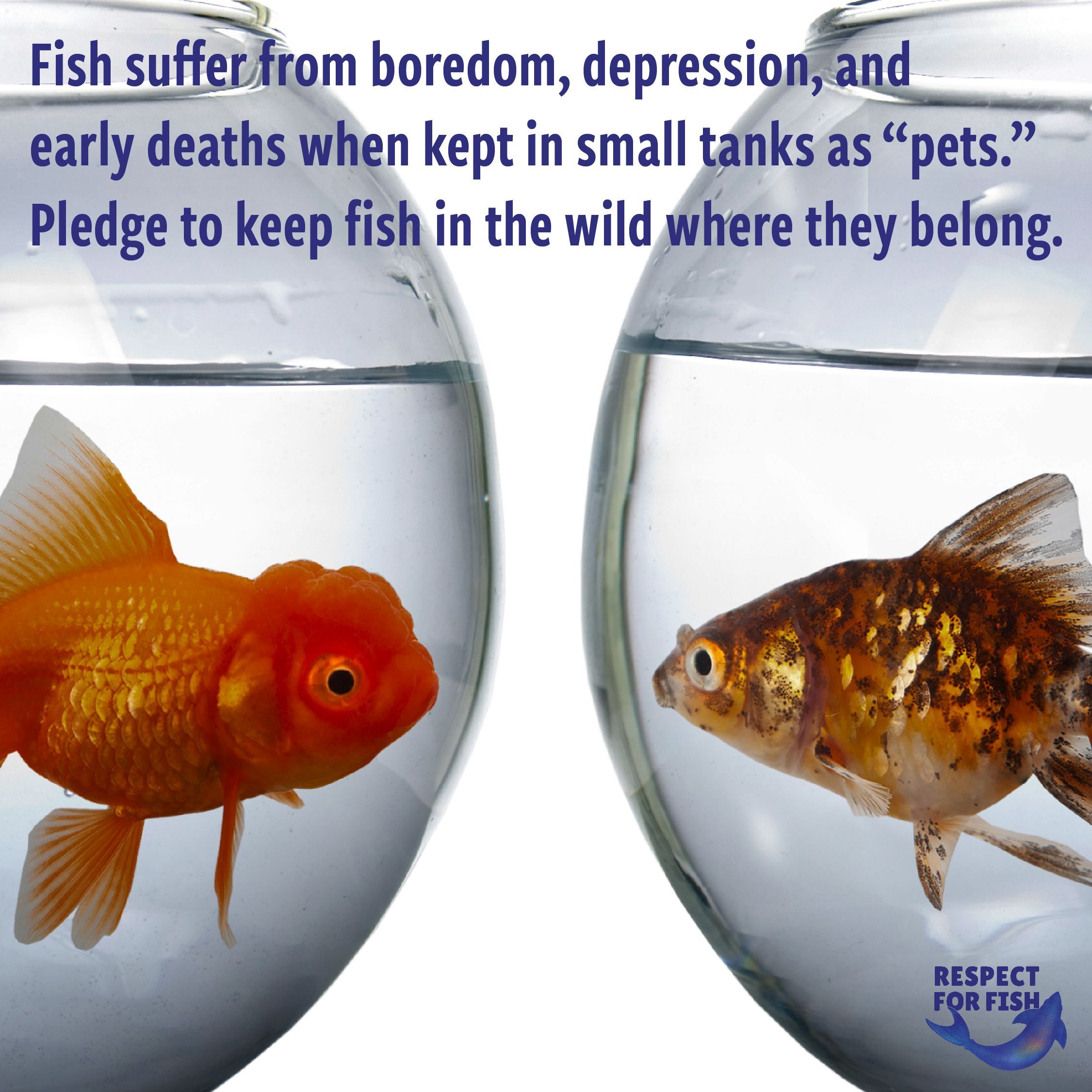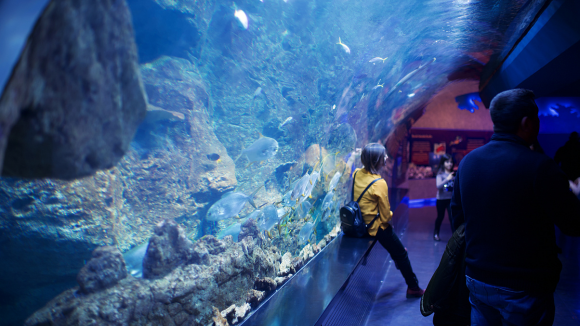Bubba Made It Personal
By Lorrin Maughan
 I’ve always felt sad when I see Betta fish for sale in pet stores, floating dismally in solitary confinement in their plastic containers while they wait for someone to throw them in a plastic bag and take them home to some unknown fate.
I’ve always felt sad when I see Betta fish for sale in pet stores, floating dismally in solitary confinement in their plastic containers while they wait for someone to throw them in a plastic bag and take them home to some unknown fate.
Even though I advocated against people consuming marine animals, and had grown to respect and honor fish (especially after reading “What a Fish Knows: The Inner Lives of Our Underwater Cousins” by Jonathan Balcombe), my sadness for pet store fish was still somewhat detached. I would mention to the staff how sad I was to see the Bettas that way (assuming the fish in the more social tanks were better off) and that I wished they wouldn’t sell live beings. Sometimes the staff would commiserate but they were unable to effect change.
Then I watched “The Dark Hobby,” a documentary about the global aquarium trade, and I started to feel sick and enraged. It’s a dark and dangerous industry, generating billions of dollars a year and contributing to the devastation of our oceanic environment and causing massive scale trauma and death to sentient individuals. “At any given moment, 28 million fish are in the aquarium trade pipeline from point of capture to home hobbyist tank. They represent over 1800 species, and many die within a year of capture, generating even more demand.” (from the Dark Hobby website)
I started to feel for aquarium fish the way I feel about dogs and cats who are bred for profit. I started noticing fish in captivity and, lacking an ability to liberate them, would send them prayers and Reiki the way I do when driving past a dairy farm or by a slaughterhouse truck on the highway.
And then I was asked by a friend to fish sit her Betta while she left town for a few weeks. She lives an hour away from me, so I brought Bubba the Betta home to care for him. My instructions were to replace his water weekly, using tap water and special drops, and to feed him twice a day. Having never taken care of a fish before, I decided to do a bit of research on the best way to take care of a Betta fish, so I could do the best job possible.
The first thing I learned was that the bowling-ball sized fishbowl he was living in, bereft of anything but a couple of ceramic ornaments, was akin to the conditions in which SeaWorld keep their enslaved orcas: too small, and lacking enrichment. The minimum sized tank for a single adult Betta fish is 5 gallons, horizontally oriented, and they need plants to help maintain the beneficial bacteria in their water. They also like their water to be between 75- and 81-degrees Fahrenheit – well, this little bowl had no heater and cooled down considerably when the room temperature dropped. I propped a heating pad around the back side of the bowl and Bubba immediately gravitated to that side of the bowl.
I felt bad for Bubba in his bowl, so I bought him some plants, which he seemed to like. I learned that Bettas prefer their water a bit murky, and I introduced some more plant matter to help with that. When I asked the pet store clerk for advice on enrichment, I was horrified to be told to get him a floating mirror so he’d think it was another Betta and attack it – which would “give him some exercise.”
But every day, as I’d stop by his bowl to talk to him and share Reiki with him, I felt sadder and sadder about his confinement. He’s a sweet fish and I get the feeling he’s doing the best he can with the situation he’s in, but he deserves so much more.
So, feeling dirty for contributing to the aquarium industry but needing to do something to improve Bubba’s quality of life (taking him back to the rice paddies he or his ancestors were abducted from isn’t an option), I bought him a 5-gallon tank with a heater, filter, and more plants.
The change in him was so obvious and gratifying – he was immediately more active, his colors grew brighter over the following days, and he started coming to the front of the tank to say hi every morning when I came out to greet him. Every day we’d spend some time dancing together, and he would “surf” the current from his water filter and show off. My housemate also started to build a relationship with Bubba that opened her heart to the fact that fish are unique and sentient individuals and has led her to advocate for them more actively as a result.
By the time Bubba’s human came home, I almost didn’t give him back; she wanted to put him back in his bowl, which broke my heart, and we had some tense exchanges. However, when her son came to pick up Bubba, he noticed how much happier Bubba was in his bigger tank and was able to convince her to keep the 5-gallon tank for him.
I have deep gratitude for that time with Bubba. Thanks to him, aquarium fish are not just an anonymous mass to me anymore, they’re individuals like Bubba. They don’t deserve the “benign neglect” of a fish tank life. It’s time we shut down the aquarium trade on all levels – from large tourist attractions like the Seattle Aquarium, to the pet industry built on the exploitation of millions of sentient aquatic beings. Please advocate for aquarium fish, educate your friends, and help Bubba’s kind live free the way they should.
————————————————
AUGUST 1ST – Please help create a more compassionate world by participating in Respect for Fish Day today!
 Respect for Fish Day is an annual event organized to raise awareness about the plight of fish. Fish are the planet’s most widely abused animals, but their suffering receives the least attention.
Respect for Fish Day is an annual event organized to raise awareness about the plight of fish. Fish are the planet’s most widely abused animals, but their suffering receives the least attention.
There are whole industries built on exploiting fish for sport, the pet trade, and in laboratories. At least one trillion fish are killed around the world for food every year. This is not sustainable.
Although scientific evidence has conclusively demonstrated that fish are capable of feeling pain, fish are largely perceived as insentient and seldom covered by animal welfare legislation.
Respect for Fish Day hopes to change this by making the general public and lawmakers realize that fish are deserving of the same compassion and protection granted to any other animal. Treat our finned friends with kindness and give them the respect they deserve. Join live #Respect4Fish Day events to create a more compassionate world for fish at Respectforfish.org


